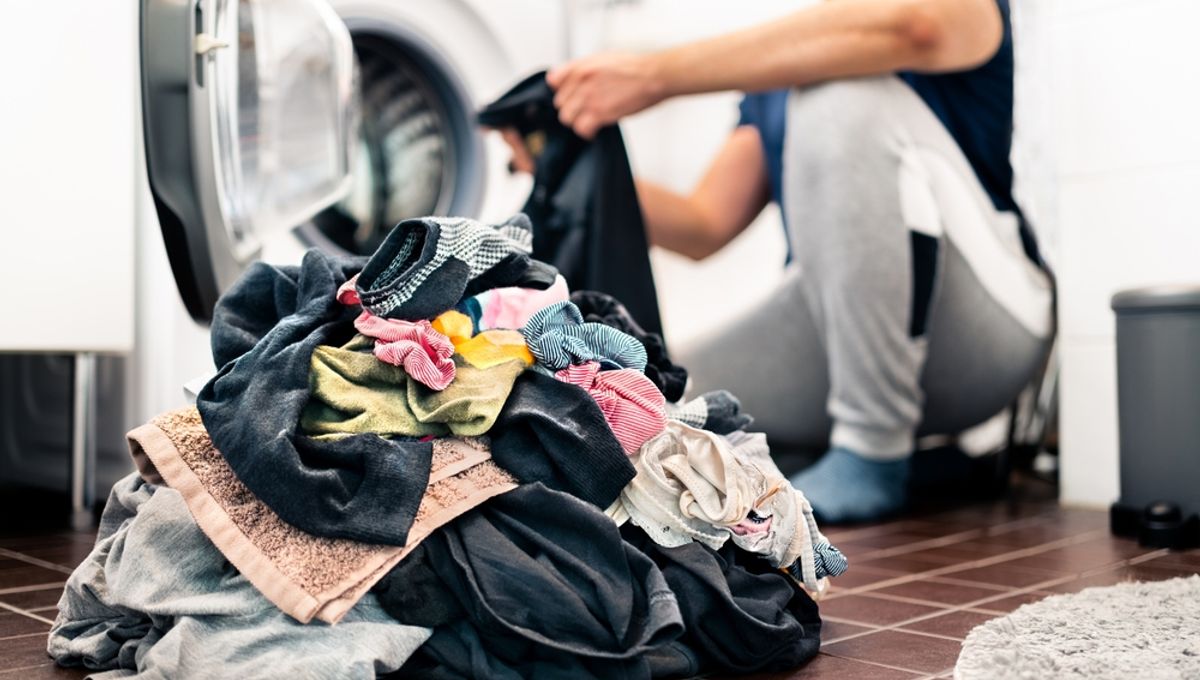
A bathroom towel welcomes millions upon millions of bacterial visitors after just a single use, so it might worry you to hear that a concerning proportion of people only wash their towels a couple of times a year (at least if this survey from the UK is anything to go by).
A recent study courtesy of a shower company asked 2,200 people in the UK how often they wash their towels and had some highly disturbing responses.
Almost a quarter (24 percent) of the respondents said they wash their towels once a week and one in 20 (5 percent) said they do so after every single bath or shower. Around one-third (33 percent) said they wash their bathroom towels just once every three months, while 8 percent only wash their bathroom towels twice a year.
Most worrying of all, 3 percent of people surveyed only wash their bathroom towels once a year. If those findings are representative of the whole of the UK, that would equate to over 1.5 million people.
What bacteria live in dirty towels?
According to data cited by the survey, a freshly washed towel is loaded with around 190,000 bacteria, but that increases to 17 million after just one day of use, and up to 94 million after a week.
Many of these bacteria will be harmless, but some will have the potential to make you sick. One of the most likely suspects is Escherichia coli, bacteria found in poop that are pathogenic and can cause serious food poisoning in their hosts.
A study by microbiologists at the University of Arizona studied dozens of kitchen towels and detected coliform bacteria in 89 percent of samples, plus E. coli in 25 percent of towels. Coliform bacteria, by the way, are typically found in animal poop and are a fairly good indicator of unsanitary conditions.
While kitchen hand towels are exposed to different risks like raw food, the same team has reportedly made similar findings in bathroom towels, with 90 percent carrying coliform bacteria and about 14 percent carrying E. coli.
Fortunately, unless you’re eating your dirty towels, the risk of ingesting pathogenic bacteria while drying yourself is pretty low. However, a dirty towel does have the very real potential to introduce germs into the skin via cuts, scrapes, and abrasions.
In 2003, there was an unexpected outbreak of MRSA among college football players in Los Angeles. Scientists studied the outbreak and concluded that it was likely spurred on by athletes sharing dirty towels, specifically, using them to dry off turf burns they picked up during the game.
Studies have also found links between sharing dirty towels and outbreaks of Bacillus cereus, a potentially pathogenic bacterium commonly found in soil and food.
“Regular washing of bathroom towels is important to maintain cleanliness and reduce the risk of infections. Towels tend to accumulate moisture, creating an environment conducive to bacterial and fungal growth,” said Dr Hamdan Abdullah Hamed, a board-certified dermatologist and medical practitioner in the UAE, commenting on the survey findings.
“Bacteria like [Staphylococcus] aureus can lead to skin infections, while fungi like Candida yeast can cause issues like athlete’s foot or yeast infections. Additionally, dirty towels may contain allergens that can trigger allergic reactions or skin irritations in sensitive individuals,” he added.
How often should you wash your bathroom towel?
“It is recommended to wash towels after every three to four uses to eliminate bacteria, dirt, dead skin cells, and allergens, ensuring optimal hygiene and minimising health risks,” explained Dr Hamed.
To cut the risk of lingering pathogens, the Cleaning Institute also recommends washing bath towels after three to five uses, so approximately once or twice a week if you shower most days – although it looks like only a quarter of Brits would agree.
Source Link: A Third Of Brits Wash Their Towel Every Three Months